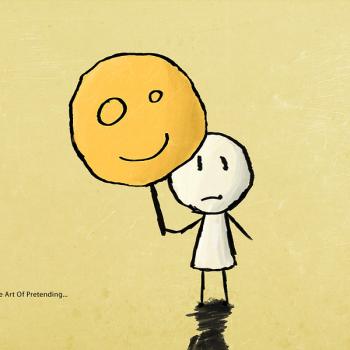Contrary to the critics who argue that homeschooling makes kids insular and intolerant and that we need public schools to establish social cohesion, a new study has found that college students who had been homeschooled are actually more tolerant of people with different political views than are products of public schools.
A Brief Review of Does Homeschooling or Private Schooling Promote Political Intolerance? (HT: Doug Favelo)
New research on political intolerance will likely surprise many people, especially negative critics of parent-led home-based education. Some have wondered, Will the homeschooled end up being more, or less, politically tolerant?
On this point, one university professor clearly implied several years ago that homeschooling cannot properly prepare children to be good adults, good citizens. Dr. Rob Reich wrote in his article, “The Civic Perils of Homeschooling,” the following:
….. [State-run/public] Schooling is one of the few remaining social institutions – or civic intermediaries – in which people from all walks of life have a common interest and in which children might come to learn such common values as decency, civility, and respect.[1]
In other words, he claimed that children, under the educational guidance of their parents, friends, and churches or synagogues, cannot become what they should without the oversight of the State and institutional schooling.
Dr. Brian Ray recently explained that those who are pessimistic about homeschooling (e.g., Dr. Reich) do not base their worries on solid evidence. Ray wrote the following:
Regarding the four categories [of negativity toward homeschooling] just mentioned, it should be noted first that none of those persons proactively oppositional to homeschooling or promoting significant state control over homeschooling offer any empirically based evidence that home education is bad for the children, families, neighborhoods, or the collective good.[2]
Scholar Albert Cheng’s just-published fascinating and provocative study provides one of the first solid portions of empirical evidence about whether the homeschooled become more or less politically intolerant than others.[3] The researcher’s purpose was to compare college students from different school types – public school, private school, and homeschool – by analyzing political tolerance outcomes. That is, are students from any particular school background more or less politically tolerant than others? Political tolerance is “… defined as the willingness to extend basic civil liberties to political or social groups that hold views with which one disagrees” (p. 49).
Cheng used an instrument (e.g., a questionnaire) called the “content-controlled political tolerance scale.” In its first of two parts, the “… scale provides the respondent with a list of popular social and political groups, such as Republicans, gay-rights activists, or fundamentalist Christians. The respondent is asked to select the group with beliefs that he opposes the most … The second part of the political tolerance scale measures the respondent’s willingness to extend basic civil liberties to members of his least-liked group” (p. 55). Participants were asked to respond to items such as the following:
1. “The government should be able to tap the phones of [the least-liked group].”
2. “Books that are written by members of the [the least-liked group] should be banned from the public library.”
3. “I would allow members of [the least-liked group] to live in my neighborhood.” (p. 60)
With this scale, he studied students at a private university in the western United States. These students came from a variety of schooling and racial/ethnic backgrounds.
Researcher Cheng clearly and in well-written style explained his meticulous methods. It is one of the best-designed and well-reported studies ever in the field of research on homeschooling. His findings are quite simple, as he brings two main contributions to the existing research on schooling type and political tolerance, and they are as follow:
· “First, the finding that increased exposure to private schooling does not decrease political tolerance comports with and adds to the empirical evidence that students who attend private schools are at least as tolerant as students who attend public schools …” (p. 63)
· “Second, this study adds new insight into the political tolerance outcomes of homeschooled children—a topic that, to the best of my knowledge, has not been empirically investigated until now. Specifically, … those [college students] with more exposure to homeschooling relative to public schooling tend to be more politically tolerant.” (p. 63-64)
These findings are clearly in opposition to the worries and claims that the home educated will somehow be damaged by homeschooling, and be worse off than those who attend state/public schools. The researcher is careful, however, to explain that this is a first study and the sample of participants is drawn from a very specific college background.
Cheng also cautioned the reader that cause-and-effect (e.g., between school type and political tolerance) cannot necessarily be established from this study. With this in mind, the researcher contemplated the following:
Two theories for why homeschooling may cause an increase in political tolerance were suggested earlier. First, students who are homeschooled may attain a greater degree of self-actualization because homeschooling is highly conducive to personalized instruction and enables students to be taught a consistent worldview. Second, the religious values taught in a homeschooling environment as well as in many religious private schools are consistent with political tolerance and other values necessary for a liberal democracy. (p. 64-65)
More research and more time might shed more insight into the political tolerance of adults who were home educated compared to those who attended institutional public and private schools. For now, based on scholar Cheng’s study, it appears that those who are worried about homeschooling have less about which to be concerned. Perhaps, in fact, this study’s findings should encourage them to promote home-based education.
















